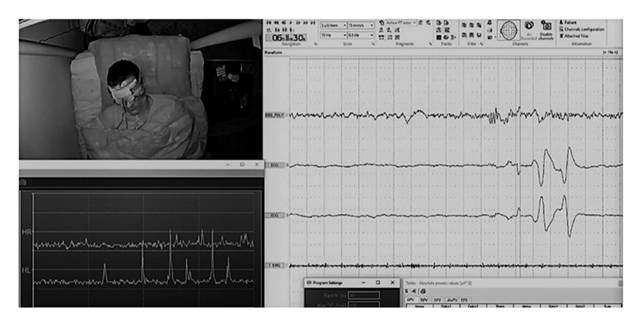We might soon be able to record the tunes we hear in our dreams, thanks to a system that's under development.
A team from REMspace – formerly part of the Phase Research Center in Russia, but soon starting operations in San Francisco – has come up with a combination of hardware and software able to decode a melody being played via arm movements into a recorded tune.
The system relies on lucid dreaming: knowing that you're dreaming while you're dreaming. Scientists have been working for decades on trying to get information into and out of the brain during lucid dreams.

While lucid dreamers remain locked down by the normal loss of muscle use during sleep – meaning physically strumming a guitar or tapping at a keyboard isn't possible – sleepers can be trained to try and move while they're dreaming, which is what happened here.
"Four lucid dream practitioners were trained to play musical rhythms by straining their arm muscles, which had electromyography (EMG) sensors on them," write the researchers in their published paper.
"Then, these volunteers were asked to induce lucid dreams and repeat the task under polysomnographic observation in a laboratory."
Volunteers were trained to play the rhythm of Queen's We Will Rock You using hand movements while they were still awake, and three out of the four volunteers were able to transmit the same rhythm during a lucid dream.

These signals and patterns were then run through a bespoke software program to interpret the rhythm and recreate the beat of the song. In some cases the arm movements were too weak to register, but three successful recordings were made.
While this experiment only involved a rhythm with two notes, the researchers say that eventually people could be trained to play more complex songs – and could eventually even play instruments or be part of an orchestra in the dream world.
However, lucid dreams are needed for all of this to work. Despite some progress in recent years, they remain difficult to trigger in a reliable way, and studies suggest that almost half the population have never had a lucid dreaming experience.
Until this technology is developed further, if you want to remember dream melodies you'll have to stick to trying to hum the tune into a recording app as soon as you wake up – but this study shows that there's plenty of potential here.
"The results demonstrate proof of concept for transferring melodies from dreams into reality," write the researchers.
"Three of four participants completed the experimental task and in most attempts were able to transmit rhythmical sounds from lucid dreams."
The research has been published in Dreaming.
